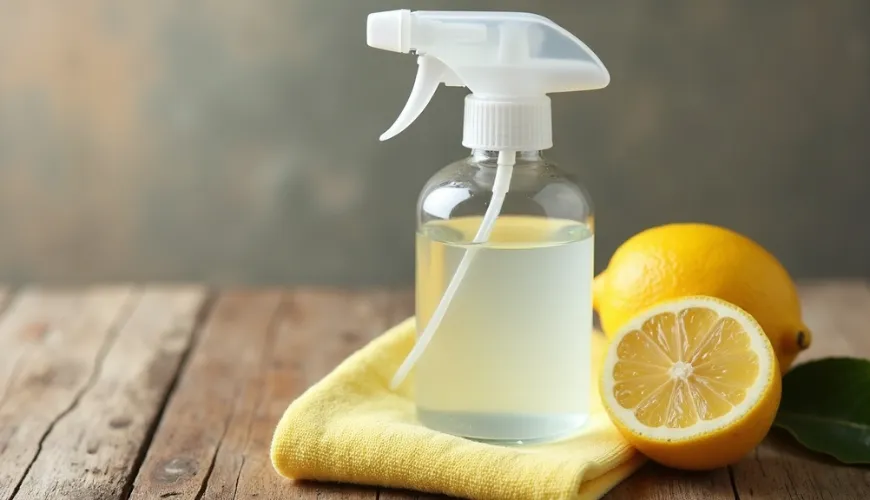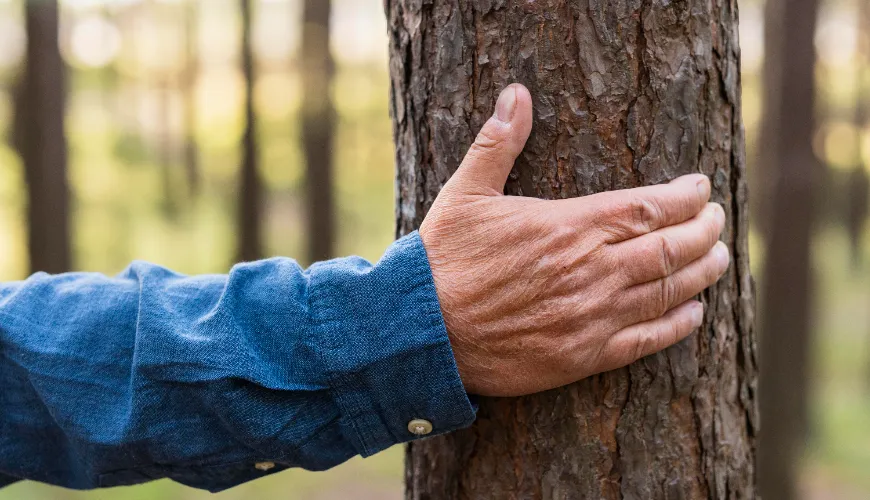
Do you want to have clean windows? Try the trick of washing windows with vinegar.

How to Effectively Clean Windows with Vinegar - An Old Trick That Still Works Today
Windows are the showcase of every home. When they are clean, a room feels fresher and more spacious. However, just a few rain showers, some road dust, and fingerprints can quickly blur even the most beautiful views. In an age where store shelves are overflowing with cleaning products in shiny packages promising perfect cleanliness, more and more people are turning back to one of the simplest and most effective methods: cleaning windows with vinegar.
It may sound too simple. Vinegar, water, a cloth — can it really be enough? Surprisingly, the answer is yes. Moreover, this method is not only effective but also environmentally friendly, healthy, and economical.
Why Vinegar?
Vinegar, specifically fermented spirit vinegar, is known for its disinfecting and degreasing properties. Thanks to its acidic pH, it effectively dissolves mineral deposits, grease, and soap residues. This is why it's commonly used throughout the household — from cleaning range hoods to descaling kettles. When cleaning windows, vinegar leaves no streaks and has the ability to give glass a beautiful shine. Additionally, it acts as a natural repellent, as flies and mosquitoes instinctively avoid its scent.
It's clear that cleaning windows with vinegar is not just an old wives' tale but a method with scientific backing. Importantly, there's no need for any chemicals that could irritate the skin, respiratory system, or burden wastewater.
How to Clean Windows with Vinegar - Step by Step
No need to search for complicated recipes. The basic ratio is simple: 1 part vinegar to 1 part water. If the windows are very dirty, you can add more vinegar. For standard cleaning, the following will suffice:
- 250 ml of white vinegar (spirit vinegar)
- 250 ml of warm water
- Spray bottle (preferably glass or reusable)
- Microfiber cloth or old newspapers
First, remove coarse dirt from the frames and windowsills. Then apply the vinegar solution to the glass surface and wipe dry. If you don't want to use a microfiber cloth, old newspapers work excellently — they not only effectively collect dirt but also polish the glass. However, remember that glossy print newspapers are not suitable, as they may leave ink marks.
Humid weather and direct sunlight are not ideal for cleaning windows. When the sun shines directly on the glass, water with vinegar dries quickly, leaving streaks. It’s best to choose a cloudy but dry day.
A Small Trick for Extra Shine
Want your windows to shine like new? Add a few drops of lemon juice to the solution. Not only does it help remove lime scale, but it also neutralizes the typical vinegar smell, leaving a pleasantly fresh scent. Plus, lemon enhances the degreasing effect of vinegar, making it ideal for windows near the kitchen area, which are often affected by cooking fumes.
A Practical Experience - "We Tried Vinegar and No Longer Buy Chemicals"
Jana, a mother of two young children from Brno, decided to try this old method when her daughter was frequently experiencing eye irritation and coughing. "I started to pay more attention to what I use in my home. I replaced chemically-based cleaners with natural ones and first tried cleaning windows with vinegar. I was surprised — the windows were clean, streak-free, and without any suffocating odor. I was completely thrilled," she describes. Since then, everything in their home, from the bathroom to mirrors, has been cleaned exclusively with vinegar and baking soda.
Everything Has Its "But"
Although vinegar is a universal helper, it is not suitable for all surfaces. For painted frames or wooden window sills, its acidity may damage the finish. In such cases, it's better to first perform a small test in an inconspicuous area or use a gentler mixture with a higher water ratio. Vinegar is also not ideal for natural rubber seals — over time, it could cause them to become brittle.
Therefore, even though vinegar is generally safe, it's good to know when and where to use it thoughtfully.
An Eco-Friendly Approach That Makes Sense
In today's world, where there is increasing emphasis on sustainability and environmental friendliness, cleaning windows with vinegar makes perfect sense. It contains no synthetic substances that would enter the sewage system, and vinegar is affordable and readily available. Consider also the amount of plastic packaging that ends up in waste each year due to conventional cleaners. By using a glass spray bottle and a natural solution, this problem can be elegantly circumvented.
Cleaning windows with vinegar also perfectly fits into the concept of a zero waste home. With a bit of creativity, you can create a whole range of universal cleaners by combining it with other natural products like baking soda, lemon juice, or essential oils.
If You Want Something Extra
For those who want to not only clean the windows but also scent the entire home, it's possible to add a few drops of essential oil to the vinegar solution. Fresh scents like lavender, eucalyptus, or mint work best. They not only improve the olfactory experience but some also have antibacterial properties.
And if you really can't stand the typical vinegar odor? Fermented cleaning vinegars with herbal additives that smell milder are available. Many of these can be found in the offerings of eco-focused online shops like Ferwer, where there is an emphasis on natural composition and a sustainable approach to home cleaning.
What Else Can You Clean with Vinegar?
Vinegar is not just something you use for polishing windows – it’s a handy helper for the entire household. It works great on kitchen appliances like the refrigerator, microwave, or kettle, tackles lime scale in the bathroom, and when mixed with warm water, is even suitable for disinfecting children's toys. It also effectively deals with unpleasant odors in the fridge or shoe cabinet.
And if you have leftover vinegar that you no longer use for cooking? Turn it into a versatile cleaner. Just add citrus peels, seal in a jar, and let it steep for a few days. The result will be not only effective but also a beautifully fragrant natural cleaner.
We live in a time when simplicity and a return to nature are gaining value again. Perhaps this is why the methods of our grandmothers are coming back into fashion — not out of nostalgia, but pure practicality. Vinegar is an example of how even the most common product can be an unexpectedly powerful ally in a sustainable household. And as the well-known saying goes: "In simplicity lies beauty." In this case, also cleanliness.

